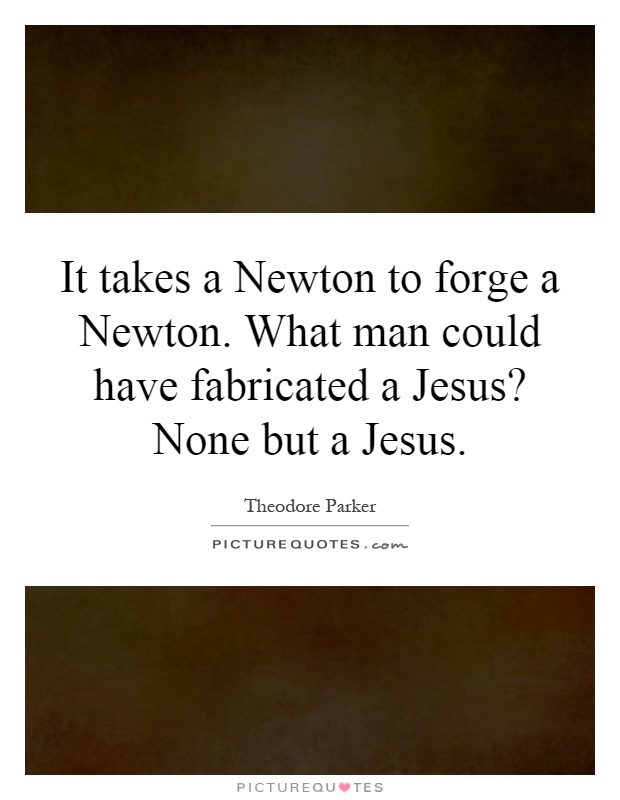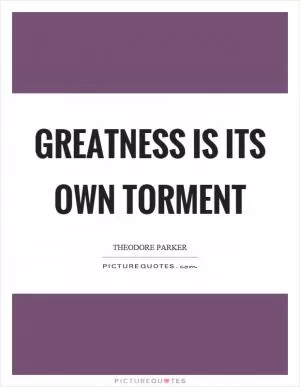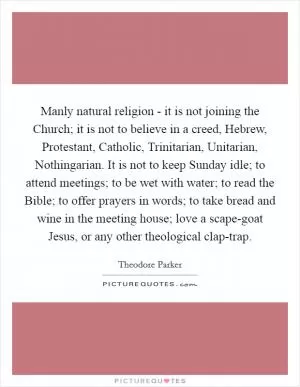It takes a Newton to forge a Newton. What man could have fabricated a Jesus? None but a Jesus

It takes a Newton to forge a Newton. What man could have fabricated a Jesus? None but a Jesus
The quote "It takes a Newton to forge a Newton. What man could have fabricated a Jesus? None but a Jesus" holds a profound significance when considering the life and work of Theodore Parker, a prominent American Transcendentalist and Unitarian minister. Parker was a man who embodied the qualities of a Jesus figure in his unwavering commitment to social justice, equality, and the pursuit of truth.Parker's life was marked by a deep sense of moral conviction and a dedication to fighting against the injustices of his time. He was a vocal advocate for the abolition of slavery, women's rights, and the rights of marginalized communities. Like Jesus, Parker challenged the status quo and spoke out against the oppressive systems that perpetuated inequality and suffering.
In his famous sermon "The Transient and Permanent in Christianity," Parker argued that true Christianity was not found in the dogmas and doctrines of organized religion, but in the teachings of Jesus himself. He believed that Jesus was a revolutionary figure who stood up against the powers that be and called for a radical transformation of society.
Parker's own life mirrored that of Jesus in many ways. He faced persecution and criticism for his beliefs, yet he remained steadfast in his commitment to justice and equality. Like Jesus, Parker was a compassionate and empathetic leader who sought to uplift the marginalized and oppressed.
The quote "It takes a Newton to forge a Newton. What man could have fabricated a Jesus? None but a Jesus" can be applied to Parker's life and work. Just as it would take a genius like Isaac Newton to understand and replicate his groundbreaking scientific discoveries, it would take a figure like Jesus to embody the qualities of love, compassion, and justice that Parker exemplified.












 Friendship Quotes
Friendship Quotes Love Quotes
Love Quotes Life Quotes
Life Quotes Funny Quotes
Funny Quotes Motivational Quotes
Motivational Quotes Inspirational Quotes
Inspirational Quotes